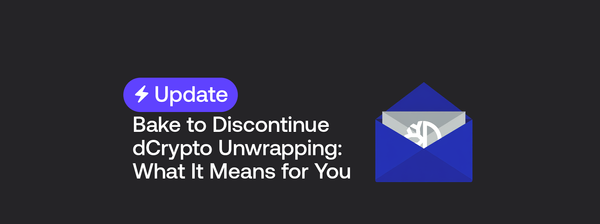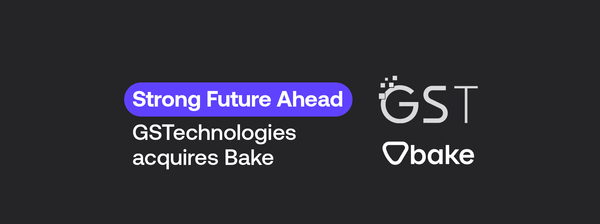Why Gold Still Has Power in the Digital Era
In an age where digital technology is reshaping the financial landscape, are the traditional age-old physical assets like gold still relevant?
Modern innovations like cryptocurrencies, artificial intelligence (AI), and decentralized finance (DeFi) all seem to be working against gold, creating the perception it is no longer relevant in the modern global economy.
Yet, gold continues to maintain its stature. Central banks continue to purchase it as a reserve, and big investment firms maintain large holdings of the precious metal.
This confidence shows gold's position as a cornerstone of economic stability, and the trust it will continue to in the future.
In this article, you’ll learn why gold is not just a mystical relic of the past, but a vital asset evolving alongside today's digital world.
What Makes Gold a Good Financial Asset?
Gold's allure extends beyond its shiny appearance. It's a versatile asset, treasured in various forms – from its role as a reserve asset to its usage in jewelry and technology.
Its liquidity, scarcity, and ability to preserve value over time make it unique. Unlike traditional investments like stocks or bonds, gold’s valuation is not based on cash flows or earnings but on market dynamics and its intrinsic properties.
Inflation Hedge
Gold’s price often moves contrary to stock markets, providing a hedge against market volatility. This counter-cyclical nature makes gold valuable during times of economic downturns or inflationary pressures. Investors often turn to gold in inflationary periods to safeguard their portfolios against the diminishing value of fiat money.
Historical Significance
Historically, gold has been a symbol of wealth and power, used in trade and as currency for thousands of years. Its inherent value was recognized early on due to its rarity, beauty, and indestructibility, leading to its adoption as a universal form of money. This historical precedent underpins gold's continued trust and reliance as a financial asset. Its timeless appeal ensures it remains a crucial component in wealth preservation and investment strategies, transcending modern financial systems and economies.
How Is Gold Still Used?
As A Central Bank Reserve Currency
Central banks play a pivotal role in the gold market. Their purchasing decisions significantly influence gold prices. In recent years, central bank gold purchases reached the highest levels on record, with 2022 seeing net purchases totaling 1,136 tons. This trend underscores the confidence national banks place in gold, solidifying its status as a key reserve asset.
In Jewelry
Gold's malleability, shine, and resistance to tarnish also make it ideal for crafting various jewelry pieces. Major markets like India, China, and the U.S. have a deep cultural affinity for gold jewelry. The demand in these countries adds value to gold as an asset and reflects its enduring appeal across different cultures and traditions.
In Hardware
Gold's excellent conductivity makes it highly useful in electronic devices. From smartphones to computers, gold's resistance to corrosion and tarnishing ensures reliable performance in high-precision electronics. Additionally, its ability to reflect infrared radiation and survive in extreme environments makes it critical for building things like spacecraft and satellites.
Gold Investing in the Digital Age
Blockchain Technology and Gold
Blockchain technology has revolutionized gold transactions, offering secure, transparent, and decentralized tracking of gold ownership and trades. This innovation has led to the advent of assets like PAXG, a form of digital gold that allows for secure ownership and trading of gold without the need for physical storage. The enhanced security provided by blockchain through advanced encryption reduces the risks of fraud and theft, marking a significant advancement in the gold market.
Artificial Intelligence in Gold Investing
Artificial intelligence (AI) is transforming gold investing by providing advanced data analysis and predictive capabilities. AI tools can analyze vast amounts of data, identifying market patterns and trends, thus empowering smarter decision-making. These insights enable investors to make more informed decisions, maximizing potential returns and minimizing risks.
Real-time Data and Gold Price Tracking
The availability of real-time data and gold price tracking technologies provide instant access to market trends and fluctuations, enabling investors to make timely and informed decisions. Online platforms offer live charts, news, and analysis, ensuring up-to-date market information.
The Future of Gold in the Global Economy
Gold’s enduring value and unique properties ensure its continued importance in the financial world. Its importance as a component of central bank reserves and a safe haven against changing economic conditions and geopolitical factors, further cement its position in the global economy.
Goldman Sachs expects gold prices to reach new highs in the coming years, while other industry leaders such as Citi, ANZ, and Commerzbank set a 12-month gold price target of $2,050 an ounce.
Gold's enduring value and unique properties will likely ensure its continued importance on a global scale, despite any changes in economic conditions and market dynamics.
Buying Gold as a Strategic Asset
Gold’s role as a financial asset, a hedge against inflation, and a safe haven during economic uncertainties firmly establishes its enduring value.
As economic landscapes evolve and digital advancements continue to shape markets, gold remains a strategic asset.
By spreading investments across various assets, including gold, investors can mitigate potential losses and enhance overall portfolio performance.
You can invest in gold directly through the “Inflation Fighters” Smart Bundle on Bake. The Inflation Fighters bundle gives you a balanced split of BTC and PAXG (digital representation of gold), optimizing your overall investment across both assets.

DISCLAIMER: Please note that the information on this blog and in any articles posted on this blog is for general information only and should not be relied upon as financial advice. Cake Pte. Ltd., Bake, UAB, and its affiliates (the “Cake Group”) are not licensed financial advisers. You may wish to approach your own independent financial advisor before making any decision to buy, sell or hold any product and/or digital assets mentioned in this blog.
Any views, opinions, references, assertions of fact and/or other statements are not necessarily the views held by the Cake Group. The Cake Group disclaims any liability whatsoever that may arise out of or in connection with such statements. Always do your own research before investing in any financial assets and consult a qualified financial advisor if necessary.




